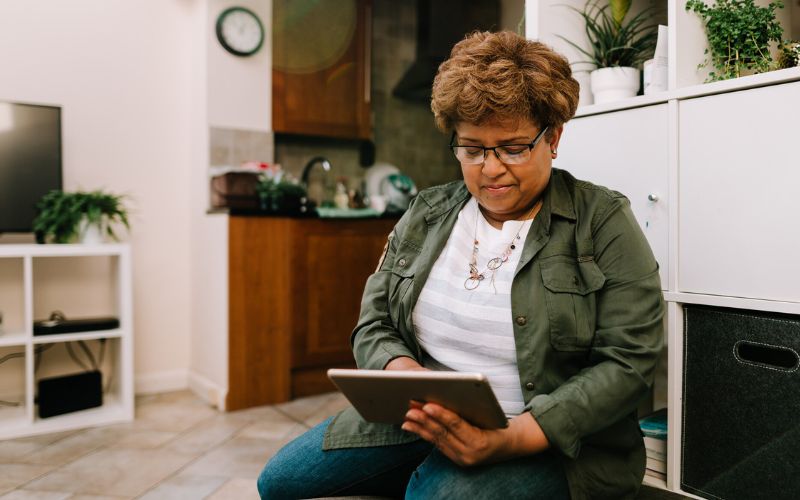Protecting Your Digital Devices

It's really important to keep your personal information safe when you're online. As well as being alert to online scams there are simple steps you can take to protect your device:
Use strong passwords
Setting up strong passwords is one of the simplest, most effective things you can do to stay safe when you're on the internet as they’re harder to guess.
Here’s some tips for creating a strong password:
- Minimum of 12 characters long
- Include upper and lower-case letters
- Use random words
- Include some numbers and keyboard symbols, for example: ?, &, !
- Don’t include personal information like your name, any other usernames you use online, your date of birth, or any family member's details.
- Don’t include common words like 'password' or an easy password like 123
Use different passwords for different accounts
Although it’s easier to use the same password on several accounts or websites, this isn’t recommended because if you were to be hacked, the hacker will have access to several accounts using the same password.
Don’t write your passwords down
If you do need something to remind you, try to write in a code that only you will understand or write down a hint to remind you of your password. You can use the feature ‘Forgot my password’ used on many websites/apps to reset your password if you have forgotten it.
Install security software on your laptop or computer
Anti-virus software will scan your device and remove viruses before they can infect your computer. Anti-spyware software stops unwanted adverts from popping up and stops programs tracking your activities or scanning your computer for private data (like credit card or bank details).
Buy a package from a reputable provider (such as McAfee or Norton) either online or from a computer shop. There are also free security software programs available online, such as AVG, Avast and Microsoft Security Essentials.
Protect your tablet and your mobile phone
Tablets and phones are used for emails, online shopping, and banking online so they need protection too. A great start is to password-protect any devices – as above, don’t use anything personal to you like your date of birth or phone number.
You can also download anti-virus and anti-spyware protection for tablets and phones. Some free, highly rated anti-virus apps are Avast mobile security, Kaspersky internet security, and Norton mobile security.
Protect your wireless network
Password-protect your home Broadband (or wireless network known as Wi-Fi) so that anyone nearby can't access it. When your Internet was installed, you should have a password to access, which you can change to make it easier to remember. Contact your Internet provider for help on how to do this.
Update your phone or tablet’s systems regularly
Every device has software called an operating system which means your phone or tablet can function properly. Tablets and smartphones use Android or iOS (Apple). Updating your device not only means your phone or tablet will work better, but it also means your device is better protected from viruses. You should receive notifications when new updates are available or you can go into ‘Settings’ and check if there’s an update due.
Need more help online?
- Visit our page on preventing online scams
- Age UK has a helpful glossary of technology terms
Page last updated: September 2023.

